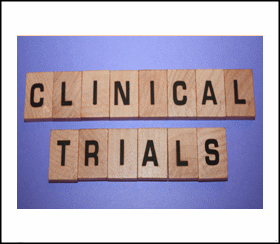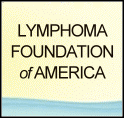 What is a Clinical Trial?A clinical trial is an experiment. As researchers develop new treatments, they need to test them to see if they are more effective than standard treatments. Clinical trials provide vital information on whether or not experimental cancer treatments are safe and effective for patients. Each clinical trial is a scientific study headed by an oncologist. The oncologist's plan for the clinical trial is called a "protocol." This document describes the exact treatments and tests to be given to patients who join the clinical trial. It also discusses the reasons why certain drugs, tests, and procedures are given to patients. Why consider a Clinical Trial?Most lymphomas can be treated with great success. Some types are more difficult to treat. If your type of lymphoma has a high success rate with standard treatments, you may want to choose a standard treatment. If your type of lymphoma is not common or is difficult to treat, you may want to explore the option of joining a clinical trial. Your doctor can help you decide whether that choice may be right for you. Your age, medical history, your general health, whether you have other illnesses, plus your eagerness or reluctance to receive an experimental treatment, are important to think about. What are the risks and benefits?Like all cancer treatments, clinical trials have benefits and risks. Benefit: You have access to experimental treatments that may have a better outcome than standard treatments; they may be less toxic and have fewer side effects; your initial screening will likely be more comprehensive and provide you with detailed information about your disease; research doctors will monitor you closely during the trial and follow you for years afterwards. Risk: Experimental treatments may not work as well as standard treatments; side effects may be worse; extra tests are usually required such as blood work and scans; you may have to travel farther from home (and your family) because the clinical trial that is right for you may be at a cancer center located farther away. How do I find a clinical trial?Here are sites that will help you find a clinical trial: National Library of MedicineClinicalTrials.govNational Institutes of Health (NIH)http://www.cancer.gov/Click on "Find a Clinical Trial" which takes you to "Find NCI-Supported Clinical Trials." There is also a live help option on that page. National Comprehensive Cancer Networkhttp://www.nccn.org/Click on "Patient Resources", then on "Find a clinical trial." How do I join a clinical trial?Each patient needs to meet the eligibility requirements for a specific clinical trial. Requirements can include: having a certain type or stage of lymphoma; not having received -- or already having received -- certain kinds of therapy in the past, your age, medical history, and current health status. Don't forget to ask . . .When you have found a clinical trial that you're interested in, but the trial will not accept you because you do not meet the requirements of that particular trial, what do you do? Don't forget to ask the staff: "Who might be interested in my case? Can you suggest other clinical trials or lymphoma specialists whom I may contact?" Can I drop out of the clinical trial if I change my mind?Yes. Once you join a clinical trial, you can decide to drop out of the clinical trial at any time and seek treatment at a different cancer center or doctor's office. Should I read the protocol before joining a clinical trial?Yes. The doctor's written plan for the clinical trial is called a "protocol." The protocol describes the exact treatments and tests to be given to patients who join the clinical trial. It also discusses the reasons for each part of the clinical trial. The protocol may be your best source of detailed information about the clinical trial. It is a lengthy and technical document. It describes exactly what to expect and which treatments and tests you will have. Keep in mind that the Consent Form (which includes a summary of risks and benefits) that you will be asked to sign, is a separate document from the protocol document. Joining a clinical trial is an important decision. If you don't understand any part of the protocol document, ask your doctor to explain it to you. Sometimes information about the clinical trial's preliminary results is available. Ask your doctor about this. Joining a clinical trial is an important decision. For some people, it is life-saving decision. Reading the consent form and treatment protocol before you join a clinical trial will help you with your decision. What about cost?Most clinical trials pay for just about everything. Your cancer treatments, tests, lodging and travel are usually included. Other clinical trials cover a portion of the cost. If you have health insurance, it may cover some or all of your cancer treatments and tests. It's complicated and there are many variables. If you choose a clinical trial, you will need to talk to your insurance company and the clinical trial staff to find out what is covered. Patients who have lost their health insurance or who cannot afford cancer treatments may wish to consider a clinical trial because the treatments, tests and follow up are free
| |


